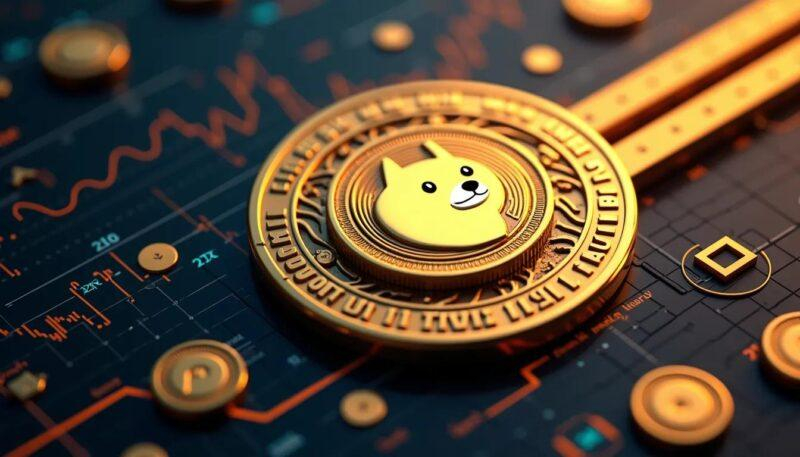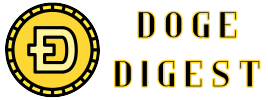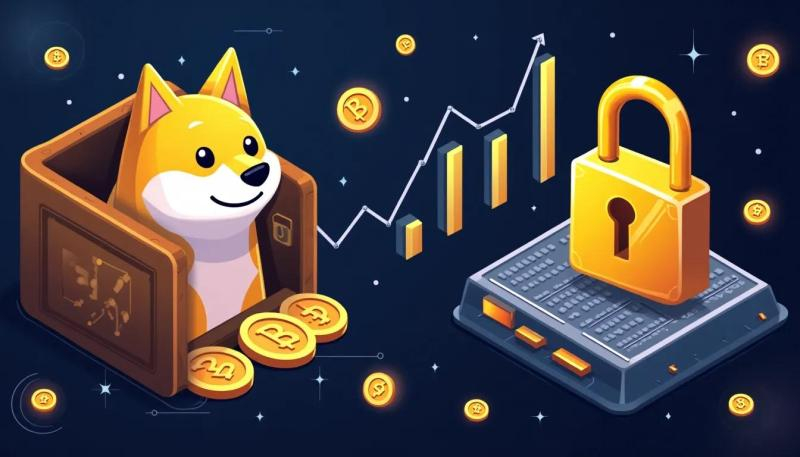In the vast and volatile world of cryptocurrency, Dogecoin has managed to carve out its own unique and meme-worthy niche. But as more and more people jump on the Dogecoin bandwagon, the importance of securing your digital assets becomes increasingly crucial. One key aspect of safeguarding your Dogecoin funds is through wallet encryption. In this article, we will explore the significance of wallet encryption and how it can help protect your Dogecoin from potential threats.
Introduction: Understanding the Risks of Unsecured Dogecoin Wallets
When it comes to storing your Dogecoin, ensuring the security of your wallet is of utmost importance. Unsecured Dogecoin wallets are vulnerable to various risks, including hacking, theft, and loss of funds. Understanding these risks is crucial in order to protect your investments and keep your assets safe.
One of the key risks of unsecured Dogecoin wallets is the potential for hacking. Without proper encryption, your wallet is susceptible to cyberattacks that can result in the loss of your coins. By encrypting your wallet, you add an extra layer of security that helps protect your funds from unauthorized access.
Another risk of unsecured Dogecoin wallets is the possibility of theft. If your wallet is not properly secured, malicious actors could gain access to your private keys and steal your Dogecoin. By taking steps to encrypt your wallet and keep your private keys safe, you can greatly reduce the risk of theft and protect your assets.
Types of Dogecoin Wallets: Choosing the Best Option for Encryption
When it comes to securing your Dogecoin, choosing the right wallet encryption is crucial. With various types of Dogecoin wallets available, it’s essential to understand the options to ensure the safety of your cryptocurrency investments. By selecting the best encryption method for your wallet, you can protect your funds from potential threats and unauthorized access.
One popular option for securing your Dogecoin is a hardware wallet. These physical devices provide an extra layer of security by storing your private keys offline, making it difficult for hackers to access your funds. Hardware wallets are considered one of the safest options for storing cryptocurrency and are ideal for long-term investors looking to protect their assets.
Another encryption method to consider is multisignature wallets, which require multiple private keys to authorize transactions. This added layer of security makes it significantly more challenging for unauthorized users to access your funds. Multisignature wallets are a great choice for users who want to share access to their Dogecoin with trusted parties while maintaining control over their assets.
Step-by-Step Guide to Encrypting Your Dogecoin Wallet
It is crucial to protect your Dogecoin wallet from potential threats by encrypting it with a strong password. Wallet encryption adds an extra layer of security to your digital assets, making it harder for unauthorized access. Follow this step-by-step guide to ensure the safety of your Dogecoin investments.
First, open your Dogecoin wallet and locate the “Settings” or “Security” tab. Click on the option that allows you to encrypt your wallet with a password. Choose a strong and unique password that includes a mixture of letters, numbers, and special characters. Avoid using easily guessable passwords such as “123456” or “password”.
After setting up your password, make sure to back up your wallet file in a secure location. You can export your wallet.dat file to a USB drive or external hard drive, and store it in a safe place. Remember to keep your password and backup separate to prevent any potential security breaches. With your Dogecoin wallet encrypted and backed up, you can rest assured that your digital assets are well-protected.
Additional Security Measures: Multi-Signature Wallets and Two-Factor Authentication
Encrypted wallets are crucial in securing your Dogecoin. With the rise of cyber threats, ensuring that your wallet is encrypted adds an extra layer of protection. By using multi-signature wallets, you can require multiple signatures to authorize a transaction, making it more difficult for hackers to gain access to your funds. Additionally, enabling two-factor authentication adds another level of security by requiring a secondary verification method, such as a code sent to your phone, before allowing access to your wallet.
Using a combination of multi-signature wallets and two-factor authentication can greatly enhance the security of your Dogecoin. Multi-signature wallets distribute control over the funds among multiple parties, reducing the risk of a single point of failure. Furthermore, two-factor authentication adds an additional barrier that must be overcome by potential attackers. By implementing these additional security measures, you can better protect your investment and have peace of mind knowing that your Dogecoin is safe from unauthorized access.
Investing in the security of your Dogecoin wallet is essential in safeguarding your assets. By taking proactive steps to encrypt your wallet and utilize advanced security features like multi-signature wallets and two-factor authentication, you can minimize the risk of theft and unauthorized access. Remember, the security of your cryptocurrency is in your hands, so take the necessary precautions to protect your investment.
Best Practices for Regularly Backing Up Encrypted Dogecoin Wallets
Securing Your Dogecoin: The Importance of Wallet Encryption
Ensuring the security of your Dogecoin wallet is essential in protecting your valuable cryptocurrency assets. One of the best practices for safeguarding your funds is regularly backing up your encrypted wallet. By following these key steps, you can minimize the risk of losing access to your Dogecoin holdings and prevent potential security breaches.
When backing up your encrypted Dogecoin wallet, it is important to store your backup files in multiple secure locations. This could include USB drives, external hard drives, and cloud storage services. By keeping your backups in different places, you can avoid losing access to your funds in case one location is compromised or inaccessible.
It is also recommended to encrypt your backup files with strong passwords to add an extra layer of security. Using a combination of uppercase and lowercase letters, numbers, and special characters can help protect your backups from unauthorized access. Additionally, regularly updating your backup files ensures that you have the most recent information stored securely.
Q&A
Q: What is Dogecoin?
A: Dogecoin is a type of digital currency or cryptocurrency, similar to Bitcoin, but featuring the popular Shiba Inu dog meme as its logo.
Q: Why is it important to secure your Dogecoin with wallet encryption?
A: Wallet encryption is crucial for protecting your Dogecoin from unauthorized access or theft. It ensures that only you have the ability to access your funds.
Q: How does wallet encryption work?
A: Wallet encryption involves creating a secure password or passphrase that encrypts your wallet file. This means that even if someone gains access to your wallet file, they will not be able to access your funds without the encryption key.
Q: What are some tips for creating a strong encryption passphrase?
A: It is important to use a unique and complex passphrase that is difficult for others to guess. Avoid using common phrases or easily guessable information, such as birthdays or pet names.
Q: Can wallet encryption be disabled?
A: Yes, it is possible to disable wallet encryption, but this is not recommended as it leaves your Dogecoin vulnerable to theft.
Q: Are there any additional security measures that Dogecoin users should take?
A: In addition to wallet encryption, Dogecoin users should consider enabling two-factor authentication and regularly backing up their wallet files to prevent any loss of funds.
Q: What should Dogecoin users do if they suspect their wallet has been compromised?
A: If you suspect that your Dogecoin wallet has been compromised, it is important to take immediate action by transferring your funds to a new, secure wallet and changing your encryption passphrase. Additionally, you should contact the Dogecoin community for further assistance and advice on securing your funds.
The Conclusion
In conclusion, protecting your Dogecoin through wallet encryption is crucial in safeguarding your investments in the ever-evolving world of cryptocurrency. By taking the necessary steps to secure your funds, you can enjoy peace of mind knowing that your assets are safe from potential threats. Remember, a little effort in setting up wallet encryption goes a long way in ensuring the security and longevity of your Dogecoin holdings. Stay safe, stay secure, and happy investing!







